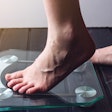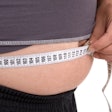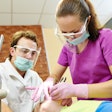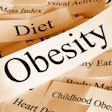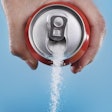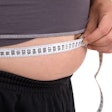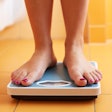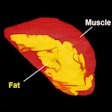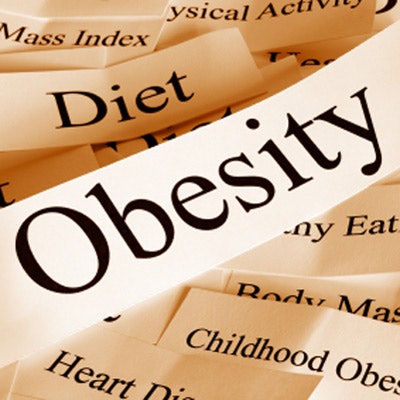
Increased consumption of sugary soft drinks may be a leading cause of tooth enamel and dentine erosion in obese patients, and excessive body fat also is linked with tooth wear, according to a study published October 28 in Oral Clinical Investigations.
Overweight and obese adults in the U.S. had more surfaces with moderate-to-severe tooth wear than those with normal body sizes, the researchers found. Consuming sugar-sweetened acidic drinks explained part of the association between tooth erosion and obesity, they noted.
"Obesity was positively associated with tooth wear in American adults," wrote the authors, led by Yousaf Kamal, a postgraduate of the Faculty of Dentistry, Oral, and Craniofacial Sciences at King's College London in the U.K.
Tooth erosion and obesity climbing
Due to the ever-increasing number of people with excessive body fat, obesity is considered a global pandemic. Meanwhile, the prevalence of tooth wear also continues to rise. Some evidence has shown a link between obesity and tooth wear. Factors, including the increased consumption of soft drinks, link the two conditions, with sugar content in the beverages leading to obesity, and the levels of acidity in carbonated drinks leading to tooth wear, according to the authors.
Their study aimed to determine the role of sugar-sweetened, acidic drink consumption in the association between obesity and tooth wear in U.S. adults.
The researchers used the National Health and Nutrition Examination Survey (NHANES) to analyze the data of approximately 3,500 adults, with nearly 34% being overweight and approximately 32% obese. They evaluated the link between tooth wear and obesity, adjusting for sociodemographic factors, patients' dental insurance, and use of acid reflux medication.
The researchers examined the effects the intake of the following drinks had on tooth wear:
- Sugar-sweetened, acidic drinks: sweetened sodas, non-100% fruit juice, and sweetened sports drinks
- Nonsugar-sweetened, acidic drinks: diet sodas, 100% fruit juices, and flavored sparkling water
- Sugar-sweetened, nonacidic drinks: sweetened coffee and tea- or milk-based products with sugar
- Nonsugar-sweetened, nonacidic drinks: unsweetened coffee and tea- or milk-based products
The prevalence of moderate-to-severe tooth wear among the study sample was about 12%, with an average of approximately three tooth surfaces affected, they found.
In adults who had tooth wear, the number of surfaces affected was 1.4 times higher for each additional sugar-sweetened, acidic drink per day. In contrast, the number of surfaces with moderate-to-severe tooth wear was 17% lower for each additional nonsugar-sweetened, nonacidic beverage the adult drank each day.
Though the researchers found no significant association between body mass index (BMI) and the probability of having moderate-to-severe tooth wear, they found a link between BMI and the number of surfaces with tooth wear that was moderate or severe. Surfaces affected in overweight adults with tooth wear were about 1.7 times higher than those with normal body sizes. In obese adults, the number of tooth surfaces affected was about 1.6 times higher than those with average bodies.
Despite their findings, the authors noted several study limitations. The study was unable to test for causal associations because it was based on cross-sectional data. Also, partial, not full, mouth exams were used to assess tooth wear, which may reduce the study's validity, the researchers added.
Nevertheless, dentists should use the results to encourage patients to make healthier drink choices.
"Dentists must be aware of the health consequences of sugar-sweetened, acidic drinks and advocate for reduction in consumption and/or substitution with healthier alternatives," the authors wrote.









